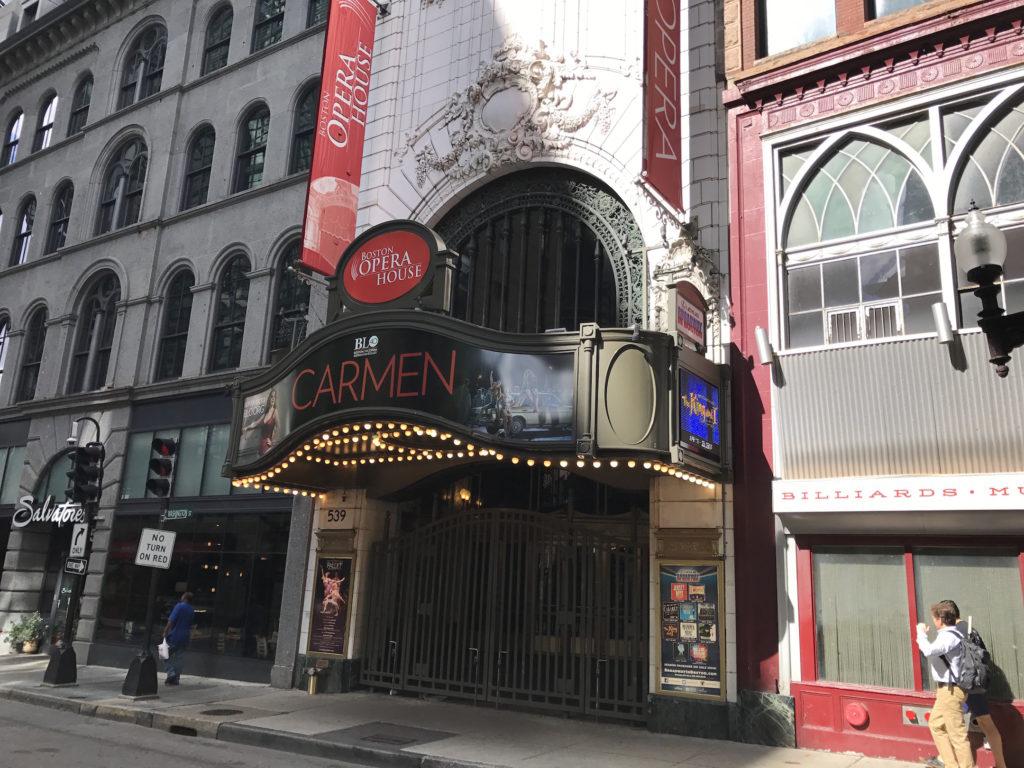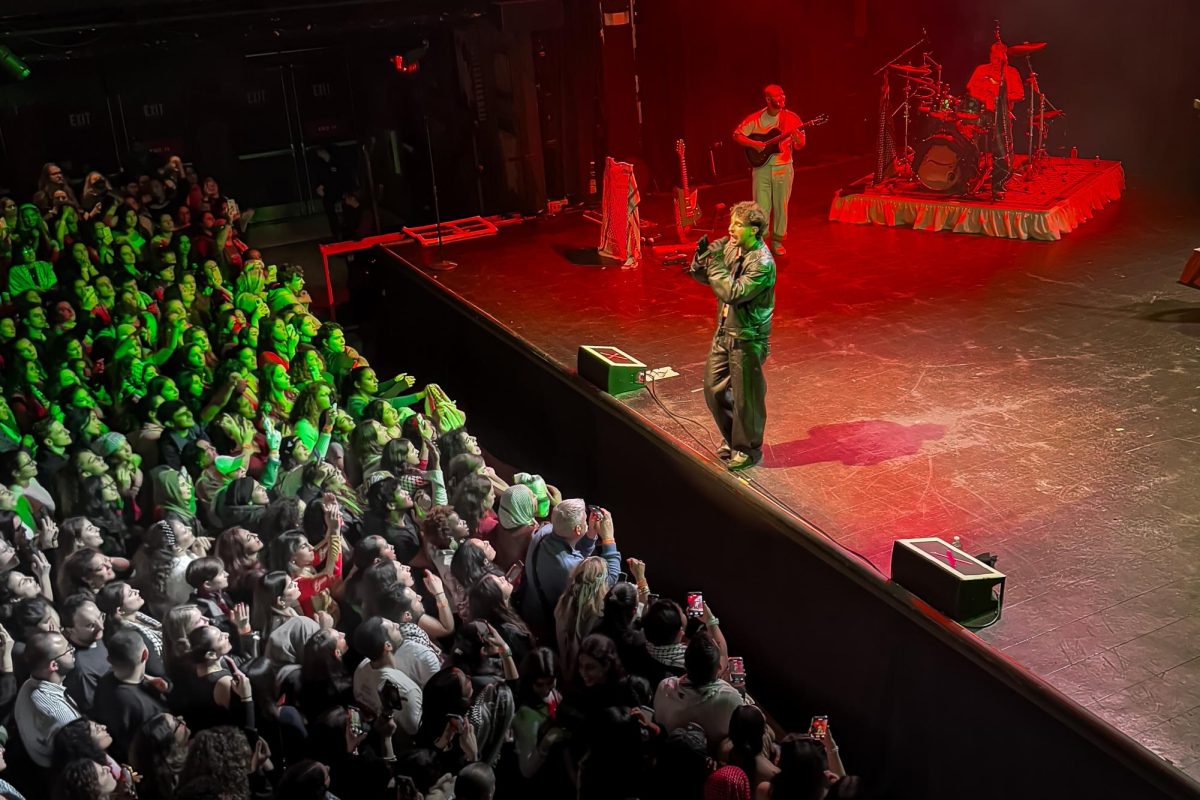By Logan Meyer, news correspondent
To celebrate its 40th season, Boston Lyric Opera (BLO) partnered this year with local charities and arts groups to produce 40 Days of Opera. The celebration, which includes film screenings, lectures, performances and parties, began on Aug. 23 and culminates with BLO’s revival production of Carmen by Georges Bizet.
“We launched 40 Days of Opera to be a celebration of opera across the entire arts community, ultimately leading to our premiere of Carmen,” Lacey Upton, director of community engagement for BLO, said.
The events include programming from BLO itself as well as contributions from 31 official partner organizations, including MetroWest Opera and Boston Conservatory.
“Boston is really interesting for opera. It’s a very musical town, but it suffers where opera is concerned,” Hilary Poriss, professor of opera at Northeastern University, said. “We don’t have a dedicated opera house. Bringing this production here, though, shows there’s still a lot of people dedicated to maintaining an operatic culture.”
Carmen, a four act French opera originally composed in 1875, depicts a tragedy involving a soldier who abandons his childhood sweetheart for the gypsy Carmen. Widely considered one of the most popular operas of all time, it has been performed an average of once a week for the last 140 years, according to Opera News.
“Carmen is one of–if not the most–frequently performed operas,” Poriss said. “There are tunes that are anst ubiquitous in American culture; it’s music that everyone knows.”
This revival was originally produced in 1999, under the acclaimed direction of Calixto Bieito. The revival then traveled the globe for more than a decade. Bieito’s Carmen was adapted to appeal to a more contemporary audience, this production of Carmen is considerably different from the original work and is based in 1970s North Africa.
“Bieito is well known for reimagining classic operas,” Upton said. “He really turns them on their heads.”
Bieito takes originally subdued aspects of classic operas and emphasizes them in order to appeal to a more modern audience, according to Upton. For example, this production of Carmen emphasizes its aspects of violence and sexuality in order to bring to light a new view of the work.
This production modernizes many regional aspects of the work. In the original piece, Spanish culture is emphasized, particularly through the use of flamenco music and dance. Bieito does away with the majority of these aspects to form a considerably more accessible show.
“[Bieito] gets rid of some of the traditional aspects to create a more modern, accessible piece of Carmen,” Upton said.
The production made its American debut in San Francisco in May 2016 with its performance by the San Francisco Opera under the direction of Calixto Bieito and Joan Anton Rechi. On Friday, Sept. 23, the production will open in Boston under the direction of Rechi alone.
“I think this is one of the biggest productions we’ve ever produced,” Upton said. “We needed a full orchestra and ended up with, I think, 63 instrumentalists. The chorus alone is 54 people. Most of the cast are our own performers, and most of them are local or based out of Boston. It’s really exciting to see what they’ve created.”
“Carmen” will be in performance at the Boston Opera House through Oct. 2.
Photo by Juan A. Ramirez









